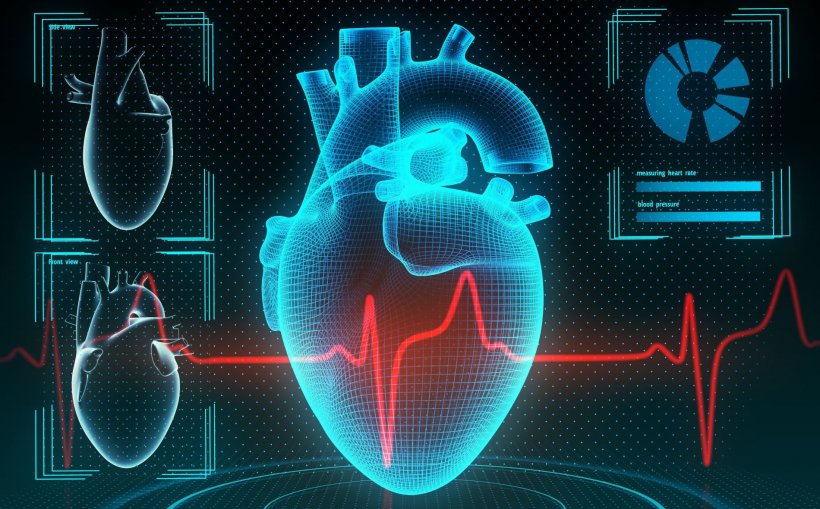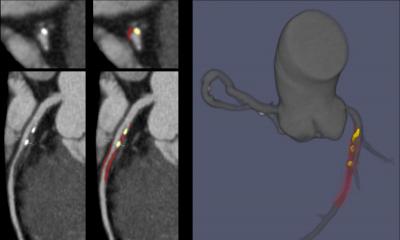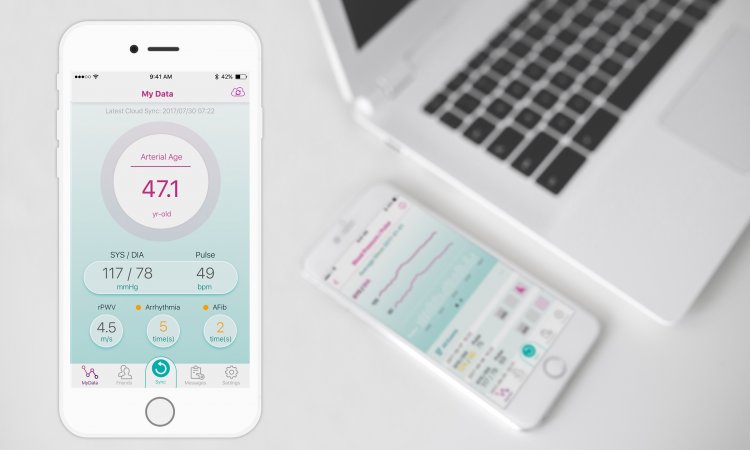
Image source: Shutterstock/Iaremenko Sergii
Article • Risk reduction, rehabilitation
The role of AI in preventive cardiology
Artificial Intelligence and Big Data in cardiovascular risk reduction and cardiac rehabilitation are offering new opportunities for increased diagnostic accuracy and more personalised exercise prescription. Experts believe it can be harnessed to design tools to enable cardiologists to make better decisions, and have more confidence in the decision-making process.
The topic was featured at ESC Preventive Cardiology 2021, an online scientific congress of the European Society of Cardiology and the annual congress of the European Association of Preventive Cardiology (EAPC), highlighting the latest developments in preventive cardiology. In a session entitled “Artificial intelligence and big data: what can they do for us?”, speakers examined the potential value of AI in cardiovascular risk reduction and cardiac rehabilitation.

In his presentation “Big data: does it always improve decision-making in imaging?”, Paul Leeson, Professor of Cardiovascular Medicine at the University of Oxford, suggested that AI can improve on the accuracy of human readers, reduce variability between readers, and give them more confidence in findings. He said that medical AI is being driven by its use within imaging, with modalities such as echocardiography offering huge amounts of data to develop new algorithms. He said traditional analysis that relies on the operator to perform measurements can introduce a lot of variability. “However, as soon as you start to automate it, you take away variability in these measurements in a reproducible way. Each time you take an image and analyse it with AI you get the same reading,” said Professor Leeson.
Some of the areas that still need addressing are ensuring that high quality evidence underlies the new AI methods and understanding to what extent use of AI and Big Data can help aid disease diagnosis. Cardiovascular imaging is at the forefront of clinical applications of AI and big data; tools are being developed for image quantifications and are now available for use.
This is beginning to suggest that actually not only can AI interpret these images but if supplied to doctors you can start to improve decision making
Paul Leeson
Professor Leeson, who has a specific research interest in pioneering AI to improve clinical tools already available to identify those at risk, such as echocardiography, and identify next generation imaging and management approaches, said use of AI to aid diagnosis could change clinical practice forever by influencing how doctors make decisions. He pointed to an example where the technique is already being applied to look at how use of AI for automation of image analysis could help in understanding management of Covid-19.
Meanwhile, another trial involved a series of stress echo images where image readers “did well” but that performance improved when they were supplied with an AI opinion. “So, AI can improve their accuracy, plus they became more confident,” he continued. “This is beginning to suggest that actually not only can AI interpret these images but if supplied to doctors you can start to improve decision making.”
In conclusion, he said: “Cardiovascular imaging is at the forefront of clinical applications of AI and big data; tools are being developed for image quantifications and are now available for use. Some of these can improve consistency of reporting, accuracy and confidence of decision-making.”
The next step is prospective trials to test whether implementation into practice leads to measurable improvements in patient outcome.
Entering the era of the 'digital nurse'
Professor Leonard Hofstra from Amsterdam UMC told the session that big data can be used to mimic randomised controlled trials and then help design tools to enable cardiologists make better decisions, while Professor Lis Neubeck from Edinburgh Napier University looked at the evolving role of nursing in the digital world.
Posing the question “are we entering the era of the digital nurse,” she said there are challenges about how nurses utilise data and in preparing the work force to embrace the digital environment, while underlining the need to continue to keep the patient at the centre of digital health. “This is why nurses should have a very central role in developing systems and ensuring they are linked,” she added.
Another role for AI is in shaping cardiac rehabilitation programmes for patients to make them more consistent. At present, patients with similar cardiovascular disease profiles may be given widely varying exercise regimes by different clinicians.
Decision support systems for exercise prescription in cardiac rehabilitation are on the rise and can help address this but Dr Dominique Hansen, Professor of Exercise Physiology at Hasselt University in Belgium, said there remained a need for more data to “unequivocally confirm the practical and clinical benefits and feasibility.”
(MN)
Profile:
Paul Leeson is Professor of Cardiovascular Medicine at the University of Oxford and Head of Oxford Cardiovascular Clinical Research Facility. He is also a Consultant Cardiologist at the John Radcliffe Hospital, where he provides expertise in Cardiovascular Imaging, as well as General Cardiology and Cardiovascular Prevention through the Oxford Specialist Hypertension Clinic. He heads the Preventive Cardiology Research Group, based in the Oxford Cardiovascular Clinical Research Facility, which aims to improve how we identify and prevent heart disease in young people. The group works in three areas novel markers of early disease, young adult cardiovascular prevention trials, and AI.
28.08.2021





